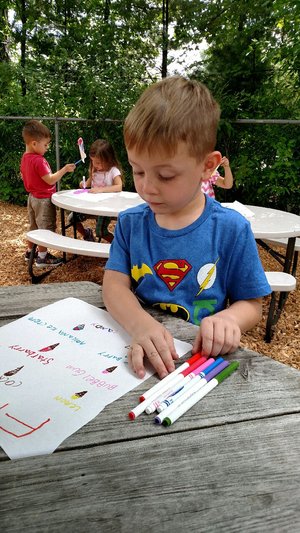Language Development
- In the first year a perceptual map of spoken sounds is established in the brain.
- Children speak in complete sentences by three and vocabulary expands to the degree that children hear words spoken in the environment.
- Children perfect proper word order (syntax) and use of tenses just by hearing the language spoken around them and to them.
- Children are interested in learning to write at about age four.
- Most children spontaneously show an interest in learning to read around age four or five.
- A deep interest in grammar and word origins begins at age six or seven.
- Children can learn perfect pronunciation of foreign languages when early exposure takes place.
Sense Of Order – From Eighteen Months To Four Years
- 3 to 6 year-olds are exquisitely sensitive to order in their environment and often cry out in frustration if things are not the way they are “supposed to be.”
- Children desire to keep order, especially if we demonstrate a simple pattern of using materials and putting them away when we are finished.
Coordination Of Movement
- Once basic movements are established, 3-6 six-year-olds love activity such as the balance beam, carrying objects and movement games that challenge them to further coordinate their movement.
- There is a powerful impetus for fine motor skills such as holding a pencil.
Sensory Development
- Children learn best when they use their hands.
- The hands function as a powerful pathway to the brain.
- Montessori recommends that we “never give more to the eye and the ear than we give to the hand.”
Interest In Small Objects
- Children like to handle small objects. When past the stage of putting everything in their mouths and it becomes safe, small objects are useful for strengthening eye-hand coordination.
Basic Concepts In Mathematics And Music
- The latest scientific research indicates that the period from birth to four is most important for developing foundational concepts of number and pattern.
- Children who are exposed to as little of one year of concrete math materials in preschool are found to be ahead of their peers all the way through high school.
- Music uses nearly the same neural structure as mathematics and has sensitive periods for development of basic music from three to ten.
- Children exposed to music before age seven are virtually the only individuals, (including career musicians) who develop perfect pitch.
- Early keyboard and singing experience dramatically increases a child’s spatial intelligence.
Summary courtesy Pathway for Families


